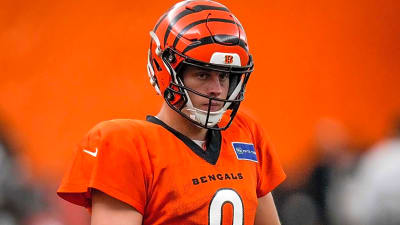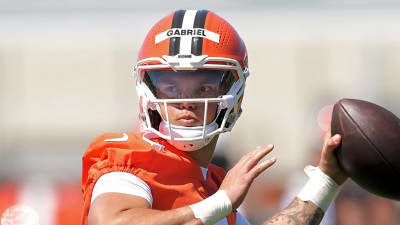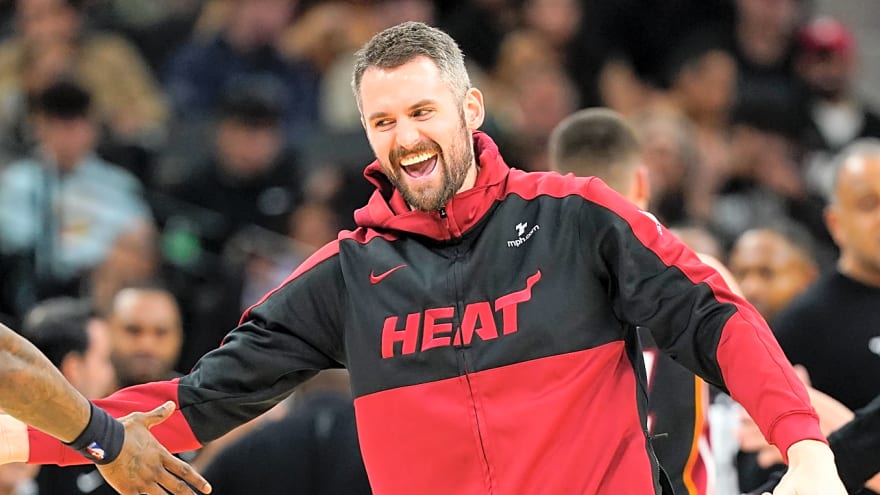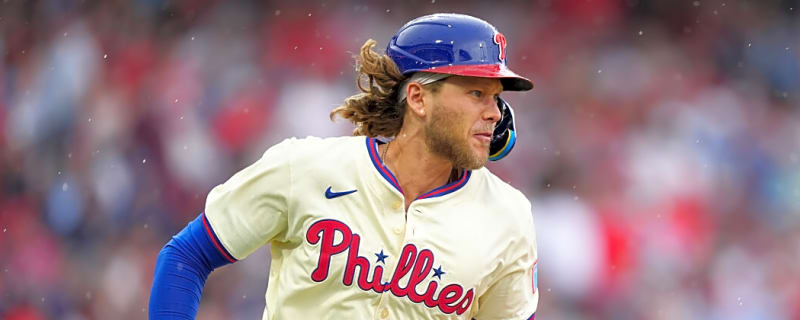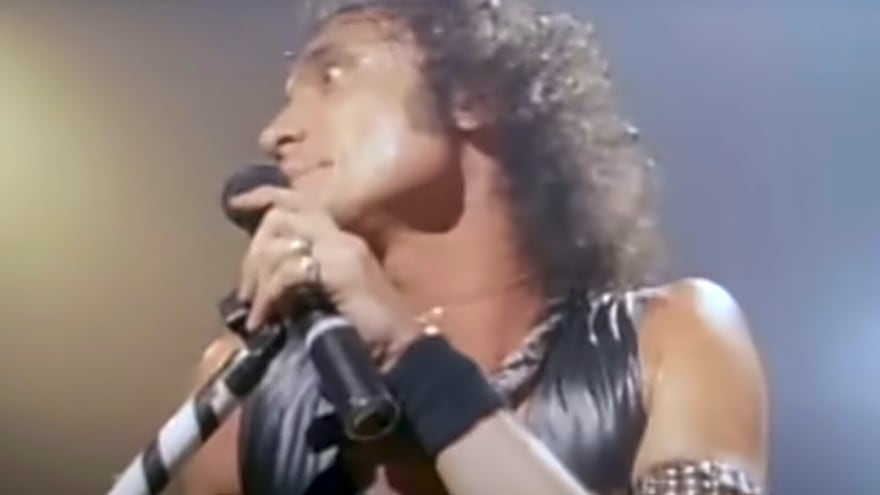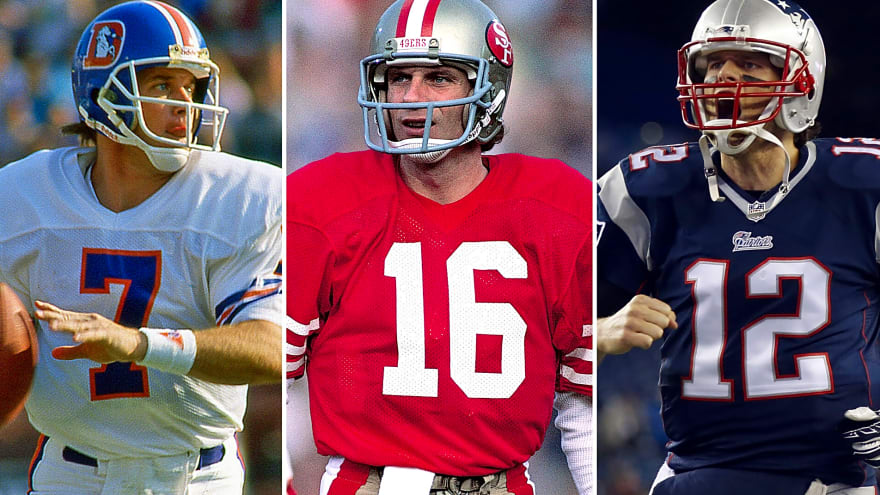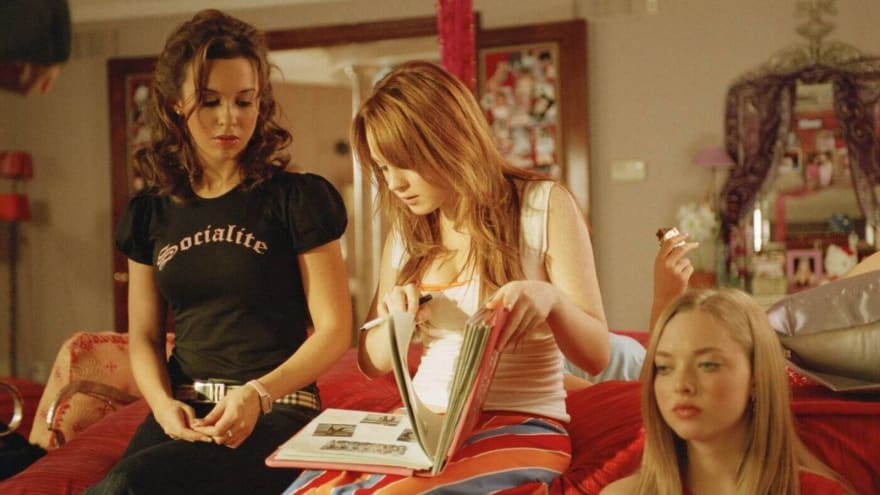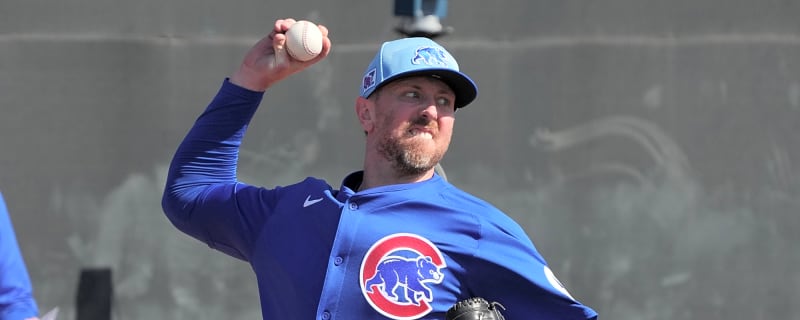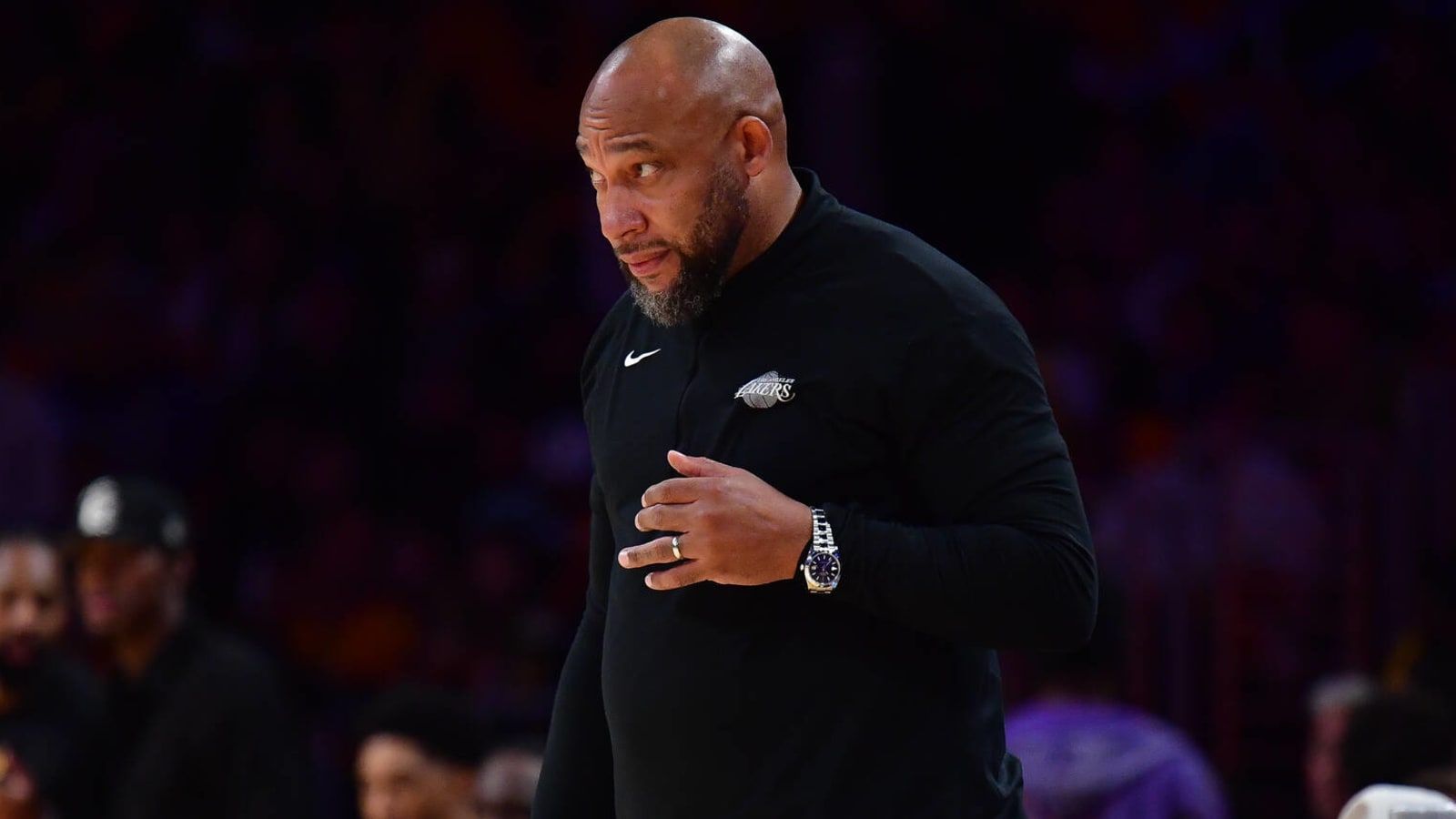
As first reported by ESPN's Adrian Wojnarowski and subsequently confirmed in a news release, Los Angeles Lakers head coach Darvin Ham has been dismissed.
According to Wojnarowski, GM Rob Pelinka recently broke the news to Ham over the phone.
Sources tell Shams Charania and Jovan Buha of The Athletic that L.A. will soon begin an “extensive search” for a new head coach, with former Bucks head coach Mike Budenholzer, Warriors assistant Kenny Atkinson, and former NBA player and current ESPN analyst JJ Redick among the candidates.
Tyronn Lue is another name to watch, per Charania and Buha, though he is currently the Clippers‘ head coach.
Multiple reporters, including Marc Stein and ESPN’s Dave McMenamin, recently cited Redick as a candidate if Ham were to be fired. Redick currently co-hosts a podcast with Lakers superstar LeBron James. He’s also a “serious candidate” for Charlotte’s head coaching position.
An eight-year NBA veteran as a player, Ham was a longtime assistant before getting his first head-coaching job with the Lakers a couple years ago. He compiled a 90-74 regular-season record (.549 winning percentage) and a 9-12 playoff record in his two seasons at the helm. The team won a pair of play-in games to advance as the No. 7 seed each of those seasons.
That postseason record is a little misleading, since L.A. advanced to the Western Conference Finals last year before being swept by the Nuggets, who went on to win the championship. The Lakers lost to the Nuggets again in 2023-24, dropping their first-round series in five games.
“It’s been a hell of a two years … I’ll tell you that,” Ham said Monday after L.A. was eliminated, per McMenamin. “Sitting in this seat, it’s been a hell of a two years. A lot of good things that got done, but ultimately, you want to win that ultimate prize.”
Wojnarowski first reported that Ham would be on the hot seat if the Lakers were quickly dispatched by the Nuggets, with multiple subsequent reports indicating that the 50-year-old’s job was in “serious peril.” On Thursday, Buha stated on "The Athletic NBA Show" podcast that Ham would likely be fired by the end of the week and perhaps sooner (hat tip to RealGM).
Ham had two years remaining on his contract, which reportedly paid him $5M annually. He has “a lot of supporters throughout the NBA,” notes Steve Bulpett of Heavy.com.
A two-time Coach of the Year with Atlanta and Milwaukee, Budenholzer won a championship with the Bucks in 2021. He was dismissed last summer following a first-round playoff exit.
Atkinson is another former head coach, having previously worked for Brooklyn. He backed out of Charlotte’s coaching vacancy a couple years ago after being offered the job.
More must-reads:
- Four potential candidates emerge for Lakers' head-coaching job
- Ranking LeBron James' NBA head coaches, from worst to best
- The '10 or more All-NBA Team selections' quiz
Breaking News
Trending News
TODAY'S BEST

One NBA team emerging as favorite to sign Ben Simmons
Ben Simmons may be headed back to the Atlantic Division. The New York Knicks appear to be the favorites to sign the former NBA All-Star forward Simmons in free agency, Brett Siegel of ClutchPoints reported Tuesday. Siegel adds that it is expected to be a veteran’s minimum contract for Simmons if he does end up in New York. Along with the Knicks, the Boston Celtics have also been at the forefront of the Simmons sweepstakes, Siegel adds. However, the Celtics signed fellow veteran frontcourt piece Chris Boucher on Tuesday, seemingly taking them out of the running for Simmons. Simmons, 29, is still unsigned over a month into the free agent period. He finished out last season with the L.A. Clippers, averaging 2.9 points, 3.8 rebounds, and 3.1 assists over 16.4 minutes per game in 18 appearances off the bench. He also previously played in the Knicks’ division, beginning his career with the Philadelphia 76ers and then getting traded to the Brooklyn Nets in 2022. The Knicks could foreseeably use another big body off the bench. However, a Simmons signing would likely be more of a flier than anything after they signed a former Sixth Man of the Year winner to carry their second unit and also added a versatile bench forward who is capable of playing and defending multiple positions. Simmons is clearly little more than minimum-contract fodder at this point of his NBA career. But as a three-time All-Star and a two-time All-Defensive selection with some playmaking juice still left in him as well, Simmons appears to be closing in on another chance in the league.

Yankees quickly pull plug on key trade-deadline acquisition
After a disastrous start to his time in the Bronx, the New York Yankees have seen enough of reliever Jake Bird. Acquired in a trade-deadline deal with the Colorado Rockies, Bird was sent to Triple-A after giving up a game-winning three-run home run against the Texas Rangers on Monday night. The long ball continued what has been a head-shaking start for the 29-year-old right-hander with the Yankees, as he has given up seven runs (six earned) and four hits in just 2.0 innings worked over three games. His recent outings extend what has been a downward spiral for Bird. While with the Rockies, Bird allowed runs in 10 of his last 17 games before being traded, equaling a 13.20 ERA during that stretch. Before that, Bird was one of the most dominant relievers in baseball, posting a 1.41 ERA through his first 28 outings of the season. Bird's collapse in the Bronx goes along with the overall struggles of the Yankees bullpen. Devin Williams, another trade that was supposed to be an answer in the late innings for New York, served up the game-tying homer on Monday night in Texas. Over his last seven appearances, he has a 7.71 ERA, and a potential change at closer could be in the air after manager Aaron Boone's comments after Monday's loss. The Yankees made deals at the deadline to boost the bullpen, bringing in Bird from Colorado, David Bednar from Pittsburgh and Camilo Doval from San Francisco. However, those moves have mostly hurt the Yankees, who also saw leads evaporate in a three-game road sweep at the hands of the Miami Marlins. While it's still too early to say the Rockies won the trade by acquiring two prospects for Bird, the early results for the Yankees certainly point in that direction. If Bird isn't able to regain the confidence that was such a big part of his demeanor while in Colorado, the trade will be a decision that New York could regret for the rest of the season and beyond.
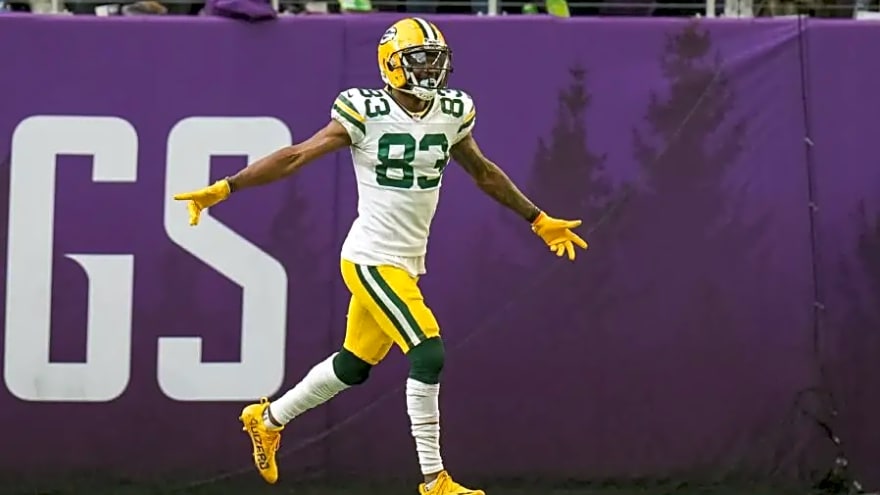
Green Bay Packers: 2 Notable Former Wide Receivers Labeled as Surprise Cut Candidates
As the Green Bay Packers deal with their own crowded wide receiver room, multiple former Packers pass-catchers are also embroiled in position battles across the league. Notably, two veterans that turned in many successful seasons in Green Bay now find themselves battling to make rosters and have been labeled as big names that could become surprise cuts when rosters are trimmed down. New York Jets May Soon Be Done With Former Green Bay Packers Receiver Allen Lazard Former Packers receiver Allen Lazard was always a favorite of Aaron Rodgers during their time together in Green Bay. When Rodgers left the franchise, Lazard ended up following the quarterback to the New York Jets. While the Rodgers era for Gang Green has gone up in flames, Lazard remains on the roster – for now. Lazard entered camp as the presumed second receiver behind Garrett Wilson, but so far, fellow veteran Josh Reynolds has seemingly beaten out Lazard for the second spot. A former Detroit Lion, Reynolds has reportedly been building a good rapport with new signal-caller Justin Fields, leaving Lazard potentially relegated to slot duties. Although the Jets have receiver depth problems, some experts don’t believe that Lazard will survive cuts. The Athletic’s Zack Rosenblatt has stated that he does not expect Lazard to be on the 53-man roster. Some names behind Lazard on the current depth chart include veteran Tyler Johnson and rookie Arian Smith, both of whom have had flashes of ability in camp so far. Several of the younger players also offer one thing that Lazard notably doesn’t – the ability to play on special teams. If Lazard is cut by the team, it would mean the team would have moved on from another former Packer after dumping both Rodgers and Davante Adams this summer. Can Former Green Bay Packers Receiver Marquez Valdes-Scantling Stick in Seattle? Marquez Valdes-Scantling was a member of the Green Bay Packers from 2018 to 2021, playing out his rookie contract with the team while being a big part of the offense. He had over 2,000 receiving yards and 13 touchdowns for the green and gold before leaving for Kansas City in free agency. In 2025, Valdes-Scantling was with the New Orleans Saints until he signed a one-year deal with the Seattle Seahawks worth around $4 million. Despite the 29-year-old being a proven veteran and solid deep threat, Valdes-Scantling currently finds himself near the edge of the Seahawks roster. Rookie receiver Tory Horton has already surpassed Valdes-Scantling on the depth chart and has been the fourth receiver in the team’s first-team rotation so far. Valdes-Scantling has been relegated to the second unit in training camp practices as of early August. Respected NFL writer Brady Henderson has said that Valdes-Scantling has “barely made any” plays throughout camp so far, whereas Horton has continued to catch eyes and has been nicknamed “Jerry Rice Jr.” by teammate Tariq Woolen. Like Lazard, Valdes-Scantling does not offer much on special teams either, and although the Seahawks would love to have a deep threat to compliment Jaxon Smith-Njigba and Cooper Kupp, if Valdes-Scantling does not show up in camp, the team could move on from the former Green Bay Packer with little financial consequence.

The teams that should have won the Stanley Cup (but didn't)
In the words of the great Minnesotan indie rocker Paul Westerberg, “opportunity knocks once, then the door slams shut.” In the doldrums of summer, fans of the Edmonton Oilers have nothing to but wonder if their opportunity really is gone and watch their CFL team lose. It is exceedingly difficult to find the right mix of talent, defense and guts to reach the Stanley Cup Final, a feat Edmonton achieved during each of the past two postseasons. Without a ring to show for it, thanks to the rival Florida Panthers, all they got for their troubles was two years closer to the end of Connor McDavid’s contract, which runs out next summer. Despair won’t set in for Oilers fans until they’re certain the window is closed, that McDavid is leaving, or both, but it can be difficult to see the writing on the wall before it’s too late. Countless teams with strong, sustained runs near the top have convinced themselves next year will be the one, only to find out that last year was the one, and they missed it. I’ve pored through post-expansion NHL history to identify four era-specific teams that had the talent and the opportunity to win the Stanley Cup but couldn’t get over the hump. You’ll find out why they could have won, when they should have and why they didn’t in one list of great teams you won’t be eager to see your favorite club join. New York Rangers (1971-75) Why they should have won: Coming off consecutive 109-point seasons and a six-game loss to Bobby Orr’s Bruins in the 1972 Cup Final, the Blueshirts boasted veteran standouts like superstar center Jean Ratelle and sniper Rod Gilbert as well as up-and-coming stars like all-world D-man Brad Park and two-way pivot Walt Tkaczuk. Backstopped by Eddie Giacomin and led by Emile Francis behind the bench, the Rangers were one of just four elite teams in a top-heavy league. In the summer of 1972, three of those teams lost key men to the upstart WHA: Boston could not match Cleveland’s offer for playoff hero Gerry Cheevers, the Chicago Blackhawks watched Bobby Hull (literally) accept a giant check to play in Winnipeg, and Montreal Canadiens’ star puck mover J.C. Tremblay became the inaugural captain of their eventual rivals the Quebec Nordiques. The Rangers spent freely on extensions to avoid an exodus of their own and seemed destined to conquer the NHL within the next few seasons. Why they didn’t: After falling short to the high-flying Bruins and gritty Hawks in the early part of the 1970s, the Rangers then fell prey to a pair of emerging superpowers. In 1974 and 1975, they lost winner-takes-all games to the rival Philadelphia Flyers and New York Islanders, respectively. The following season Francis, who doubled as GM and was frustrated by his inability to cash in on the already waning distraction of the WHA, swung a desperate trade that sent Park and Ratelle to Boston for Carol Vadnais and an aging Phil Esposito. He was fired shortly thereafter. ‘Espo’ was better than you remember on Broadway, averaging over 35 goals per 82 games, but his stint as captain was a dud. New York would miss the postseason entirely in Esposito’s first two seasons before Swedish imports Ulf Nilsson and Anders Hedberg helped him fire the Rangers to a trivia question Cup berth in ‘79. Still, their best chance at winning it all left town with Park and Ratelle, both of whom enjoyed brilliant second acts in Boston. Biggest miss: Just months after shrewdly insulating himself from the fallout of the WHA’s formation, Francis’s plan for world domination was already working like a charm. Esposito, then the joint talisman of Boston’s irresistible attack, went down with a serious knee injury two games into a first-round Stanley Cup rematch. The Blueshirts proceeded to overwhelm Orr with their forecheck as Tkaczuk and Calder-winner Steve Vickers combined to fire nine goals past Cheevers’ old partner Eddie Johnston and a 44-year-old Jacques Plante. Perhaps Park and Gilbert were too preoccupied imagining their names being etched onto the Cup after trouncing the B’s in five to remember they still had another two series to win: the Rangers were badly unprepared for what came next. In the semifinal round against the Blackhawks, Dennis Hull torched New York for five goals and 10 points while Tony Esposito held the Rangers to 10 goals total. The five-game stand was never close, and the stars wouldn’t align for the Rangers for another 21 years. Philadelphia Flyers (1995-98) Why they should have won: After missing out on a major upset of the almighty Oilers in Game Seven of the 1987 Stanley Cup Final and losing to the Canadiens in the 1989 Conference Final, the Philadelphia Flyers quickly fell apart. By the summer of 1992, the Flyers had shipped off Brian Propp, Dave Poulin, and Rick Tocchet, among others. The only notable return pieces were explosive winger Mark Recchi (acquired from PIT for Tocchet) and a young power forward named Rod Brind’Amour (acquired from STL for Ron Sutter). Amid an unprecedented playoff drought, the Flyers still needed more firepower, so they went and got some heavy ordinance at the 1992 NHL Entry Draft. The Orange and Black paid a king’s ransom to the Nordiques for their unsigned No. 1 pick from 1991, Eric Lindros, who arrived in Philly with unparalleled (and wholly justified) hype. The Flyers were back in the postseason within three years after team legend Bobby Clarke took the helm as GM for the second time in 1994 and traded Recchi for future 50-goal winger John Leclair and roving defenseman Eric Desjardins. Their core complete, Lindros, Brind’Amour, Leclair, and Swedish sniper Mikael Renberg gave the Flyers the biggest, baddest and best top six in the NHL. Why they didn’t: The Flyers picked a bad time for their ascendency, losing their deepest playoff runs to a couple of signature teams from the turn of the century. The 1995 New Jersey Devils and the 1997 Detroit Red Wings both found ways to neutralize Lindros (by his standards, at least) and exploit the Flyers’ so-so depth on their way to the Cup. Philadelphia’s goaltending wasn’t much help, either. Matching up an aging, temperamental Ron Hextall and his assorted platoonmates against an Eastern Conference murderer’s row featuring Martin Brodeur, Dominik Hasek and Curtis Joseph was something like bringing a water balloon to a gun fight. Biggest miss: No one could blame the Flyboys for their four-game dismantling at the hands of the Detroit Red Wings in 1997. That the Flyers were ever favored against the Wings, who boasted eight future Hall-of-Famers, speaks to their imposing reputation during the late 1990s. Philadelphia’s true misfires bumpered their lone Cup appearance of the Lindros era. Getting goalie’d by John Vanbiesbrouck in 1996 was bad enough, but Clarke’s attempts to secure a rematch with Detroit in 1998 were almost comically misguided. His new coaching hire, Bruins’ legend Wayne Cashman, was demoted after 61 games in favor of Roger Neilson. His big RFA signing, Chris Gratton, was a dud who would end up back in Tampa within 14 months. A chaotic season ended quietly as Hasek and the Buffalo Sabres stifled Philly in five games. Lindros and Clarke would fall out in a protracted saga over the next three years, and the Flyers stumbled into two decades of mediocrity and infinite “what-ifs?” after the end of the Big E’s brief, brilliant run at the top. Vancouver Canucks (2009-12) Why they should have won: Marc Crawford, Markus Naslund and the "West Coast Express" era of early-2000s Canucks hockey are a case study in how rarely fun hockey and winning hockey intersect. The goals flowed freely, but Vancouver’s wide-open style and bad goaltending were a lethal mix in the postseason. Crawford got the axe after a pedestrian 2005-06 campaign, and new bench boss Alain Vigneault made it his mission to mold the free-scoring ‘Nucks into an elite defensive group. "AV" got a big headstart that same offseason when Naslund’s buddy Todd Bertuzzi was dealt for Roberto Luongo. Naslund followed Crawford and Bertuzzi out the door before long, and Vigneault rebuilt his leadership group around superstar goalie Luongo, the already-established Sedin twins, and future Selke-winner Ryan Kesler. By 2010-11, that core was supported by perhaps the deepest blue line of the cap era: Kevin Bieksa, Alex Edler, Christian Erhoff, Dan Hamhuis and Sami Salo. The results were predictably dominant. With a first-placed offense, first-placed defense and first-placed team, the Canucks marched on toward their championship destiny. Why they didn’t: Would it be too cute to type “Tim Thomas” and finish up? After a first-round war with the defending champion Blackhawks, a tough series against Hamhuis’s old friends in Nashville, and a five-game walkthrough of a formidable Sharks team in the WCF, the Canucks found the one question for which they had no answer: Thomas, the Bruins’ star netminder. The portly, 37-year-old Vezina winner concluded his improbable rise to glory at Vancouver’s expense on and off the ice, shipping just eight goals in seven games. The memory of the scrambling, scruffy Thomas must still haunt the brothers Sedin, who lost to three straight Cup champions from 2010-12. Biggest miss: It’s hard to run down any runner-up. Winning three series is never easy, and taking Boston to Game Seven while so impotent on offense was a credit to the Canucks’ ability to grind out tough wins. The next season, their resolve wasn’t quite as apparent. Despite having locked up a second-straight Presidents’ Trophy, Vancouver got blown away in five games by the eighth-seeded L.A. Kings. You may recall how well that year went for the Kings, who never faced elimination and didn’t even see Game Six until the Cup Final. In retrospect, the Canucks could have had a similarly easy path. Instead, some combination of Jonathan Quick’s heroics in goal, an injury to Daniel Sedin, and the offseason departure of Erhoff prevented Vancouver from breaking down a stubborn Kings defense. It would be eight years before the ‘Nucks won another series. San Jose Sharks (2016-19) Why they should have won: The Sharks’ section of this piece could encompass over a decade from when the team traded for Joe Thornton in 2005 until his playoff swansong in the Bay Area in 2019. The newly elected Hall of Famer’s excellence and longevity were such that San Jose was never too far away from contention while he was around. The Sharks missed the playoffs just twice during Thornton’s tenure and won at least a series on nine occasions. It’s ironic, then, that their best chance at a Stanley Cup came just as “Jumbo” began to fade into the background. In desperate need of a refresh after the team’s first postseason miss of the Thornton era, GM Doug Wilson replaced longtime coach Todd McLellan with former Devils’ bench boss Pete DeBoer in the 2015 offseason. Joe Pavelski, meanwhile, ended a captaincy carousel that had seen both 17-year man Patrick Marleau and Thornton stripped of the ‘C’ over the previous five years. The leadership changes worked, and with late bloomer Brent Burns emerging as one of the most dangerous blue line scorers in the sport and primed stars Pavelski and Logan Couture grabbing the torch from the old guard of Thornton and Marleau, San Jose seemed ready to end Chicago and L.A.’s lengthy reign over the West. Why they didn’t: The Sharks did end the Blackhawks/Kings Cup streak by finally conquering their boogeyman, Jonathan Quick, who posted a .931 postseason SV% against San Jose from 2013-14. This time, Quick’s postseason magic ran dry as Pavelski beat him five times in a short and sweet series. Postseason scoring leader Couture (10 G, 30 P in 24 GP) played the hero in the next round, a seven-game war against the Nashville Predators, before Pavelski exploded for another four tallies in the Western Conference Final against the St. Louis Blues, who had earlier vanquished Chicago. With the Kings and Blackhawks out of the way (semi-permanently, as it would turn out), all that was left for the Sharks was to topple the Eastern Conference champion. The problem? That team happened to be the fired-up, Sidney Crosby-led Penguins, who were under plenty of pressure to win themselves after eight ringless years. San Jose seemed to lose heart after going down 0-2 in overtime on the road, and Thornton, who racked up 82 regular-season points and 18 postseason assists that year, never fully recovered from the futile 106-game grind. Worst miss: 2016 was effectively the last hurrah for Thornton, at best a middle-sixer for the remainder of his Sharks career, and Marleau, who signed with Toronto a year later, but the team itself had plenty of juice left. That made it all the more frustrating when San Jose bowed out to McLellan and Connor McDavid’s untested Oilers in 2017 and the expansion Vegas Golden Knights the next year. By 2018-19, Pavelski was 34 and out of contract, and Wilson knew it was time to push his chips in for one last run at glory. The Sharks paid a small fortune in separate trades for Norris-winner Erik Karlsson and power forward Evander Kane, and, after an emotional comeback from 3-0 down against the Knights, it looked as though Wilson had built a team of destiny. Instead, the Cinderella St. Louis Blues took revenge for 2016 by shredding San Jose’s bottom-ten defense. St. Louis went on to lock up their first Stanley Cup a few weeks later, and Pavelski would leave California as a free agent that summer. Pavelski’s departure, Couture’s injury woes, and the exorbitant trade and contract costs associated with Karlsson plunged the Sharks into a deep, dark rebuild that has only recently begun to show signs of life.
Customize Your Newsletter
 +
+
Get the latest news and rumors, customized to your favorite sports and teams. Emailed daily. Always free!
